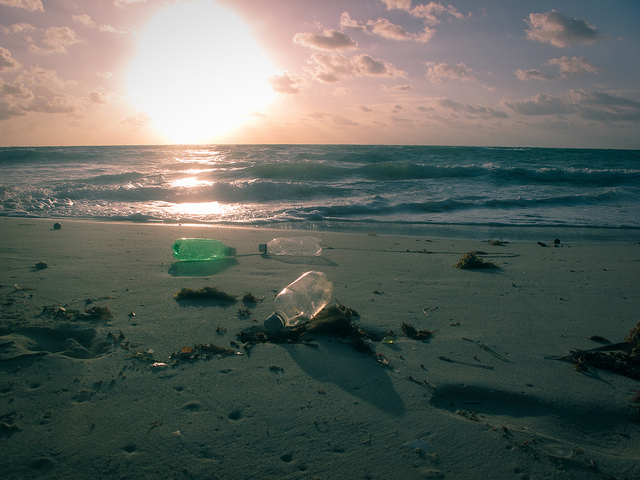Like this article? rabble is reader-supported journalism. Chip in to keep stories like these coming.
The world’s ocean is the most mysterious, abundant and diverse ecosystem on the planet. It covers over 72 per cent of the world’s surface, provides over 70 per cent of the oxygen that we breathe as well as over 97 per cent of the planet’s water supply. We have so much to thank the oceans for and most importantly, without the ocean, we would not exist today.
However, everyday the oceans are under attack from natural and human-produced pollution, which is not only affecting marine life and their habitats, but also us.
Canada is home to the longest coastline in the world. Whether you are one of the seven million inhabitants on the Canadian coastline, or live inland, the beauty and sheer size of the oceans is awe-inspiring.
Three out of the five oceanic divisions including the Arctic, Atlantic and Pacific Ocean surround Canada, providing amazing and diverse experiences for all. Over 40 per cent of Canada’s jurisdictional area is ocean, meaning that there have been many programs and laws set in place to protect the magnificent marine life within.
However, as the population and industries increase in size, so too does ocean pollution. So what can we do to help? Here’s seven ways we can help:
1. Be aware of ocean pollution
It’s a good start! Once you understand how vital this system is to our existence, you will want to ensure its protection for our generation as well as the generations yet to come.
Check out the infographic below for the startling information on ocean pollution.
2. Be aware of your carbon footprint
The ocean acts like a giant carbon sponge, absorbing carbon dioxide that is emitted into our atmosphere from industrial sources as well as our day-to-day lives.
The ocean currently absorbs approximately 30 per cent of the carbon dioxide produced by humans, however this has declined dramatically over the past few decades, and will continue to do so if we do not make a change.
Even the smallest change on our part can make a difference. When leaving a room in your home, make sure to turn the lights off. In addition, if you drive to work, maybe leave your car at come and ride a bike.
3. Eat sustainably sourced seafood
The pressure on our oceans is ever increasing due to the demand for shipping, fishing as well as tourism activities. From ocean to ocean, the effects of overfishing, pollution mixed with climate change is ever present and this poses an increasing threat to certain marine species.
Throughout the last century, the Atlantic Cod, Basking Sharks and Salmon numbers have deteriorated rapidly. When going out for a meal, make sure to be aware of this and only eat sustainably sourced seafood.
4. Reduce the amount of plastic you buy (especially those water bottles!)
Plastic is by far one of the largest factors of ocean pollution. Every year over eight million tons of plastic is deliberately dumped into the ocean globally. Even though there have been certain laws and regulations set in place, relating to the dumping of trash within Canadian waters, reducing the amount of plastic you buy is a good start to eliminating this global pandemic.
Instead of buying a plastic water bottle, every time you finish a bottle, why not buy a re-usable water bottle? Bring reusable grocery bags, instead of using plastic ones too.
Not only will this save you money in the long run, you will also be protecting the environment.
5. Become an ocean advocate and get involved in volunteering programs
Throughout the world, volunteering projects are taking place. Whether you volunteer in a rescue centre for injured marine life, or get involved in a beach clean, you will be doing your part to help the planet as well as get the message out there to other caring individuals.
6. Don’t purchase any items that exploit marine life
Certain products and gifts contribute to the harming of delicate coral reef systems as well as marine populations. Avoid buying coral jewellery as well as tortoiseshell hair accessories (made from the hawksbill turtle) and shark products such as teeth and bones.
7. If you own a pet, it’s time to become an ocean-friendly pet owner
What ever you choose to feed your pet, make sure that you check the labels to ensure that your pets food is made from sustainable seafood. If you are the owner of an aquarium, make sure to never introduce any of these fish into the ocean or other bodies of water as you could be introducing non-native fish and potentially harmful species into the existing ecosystem, which can not only upset the balance of this ecosystem but can also be deadly to marine life.
Protecting the oceans should be of utmost importance to us. If you would like to learn more about ocean pollution and how it affects marine life, their habitats and humans, take a look at the fascinating infographic below, which will leave you shocked at how the smallest of mistakes can lead to devastating consequences for life on earth.

Photo: flickr/Angela Rutherford



